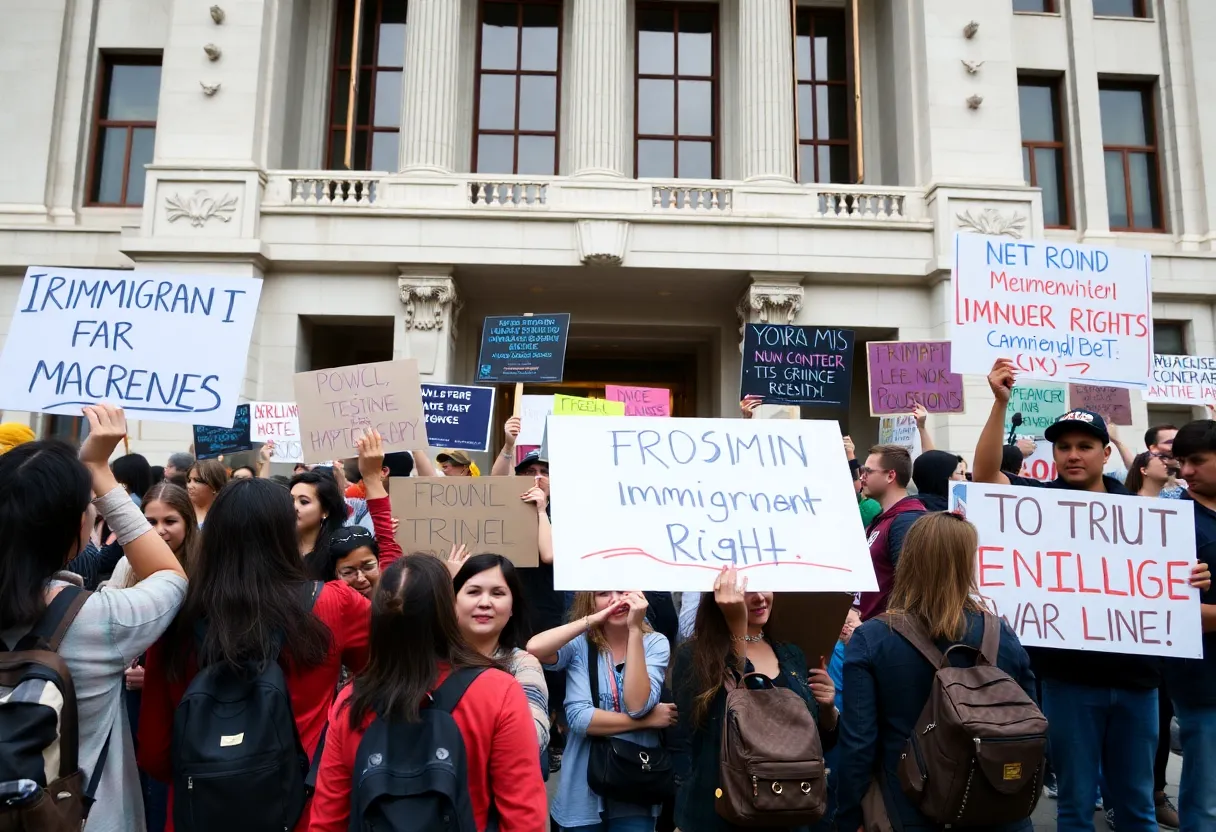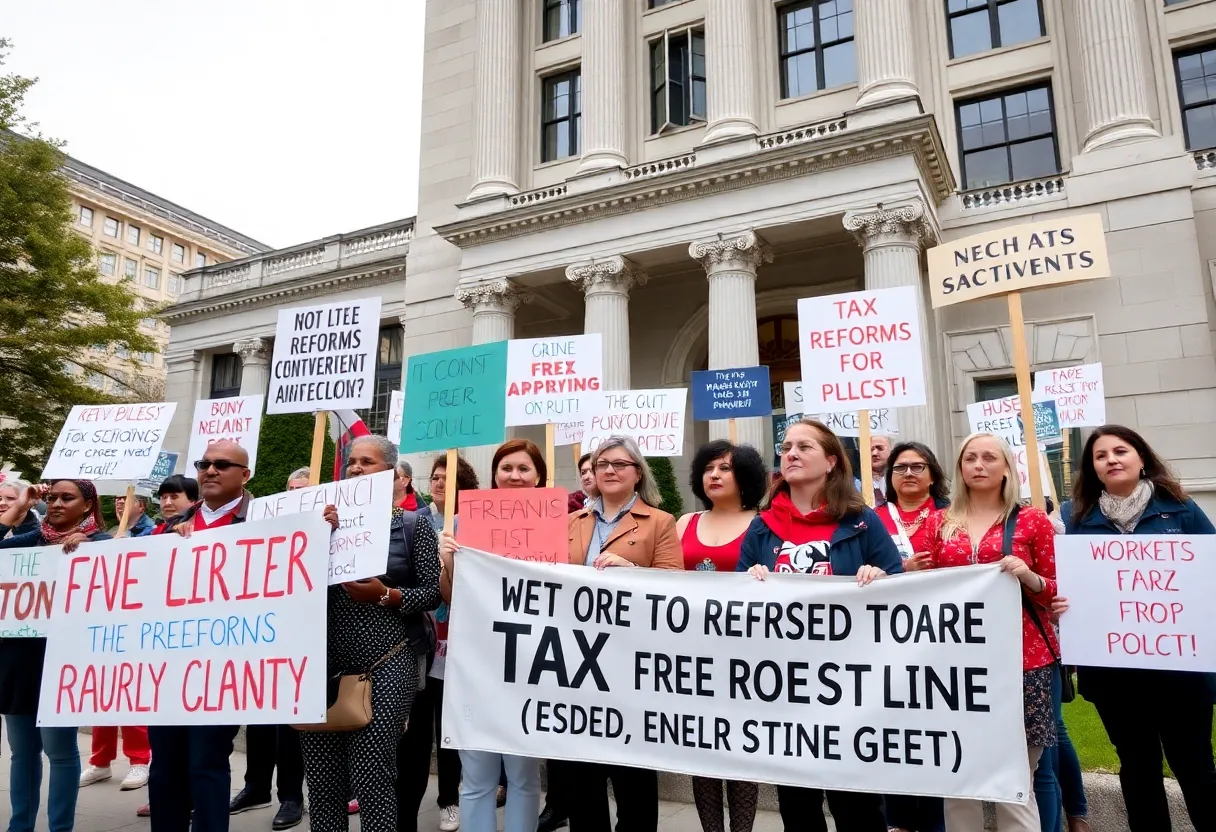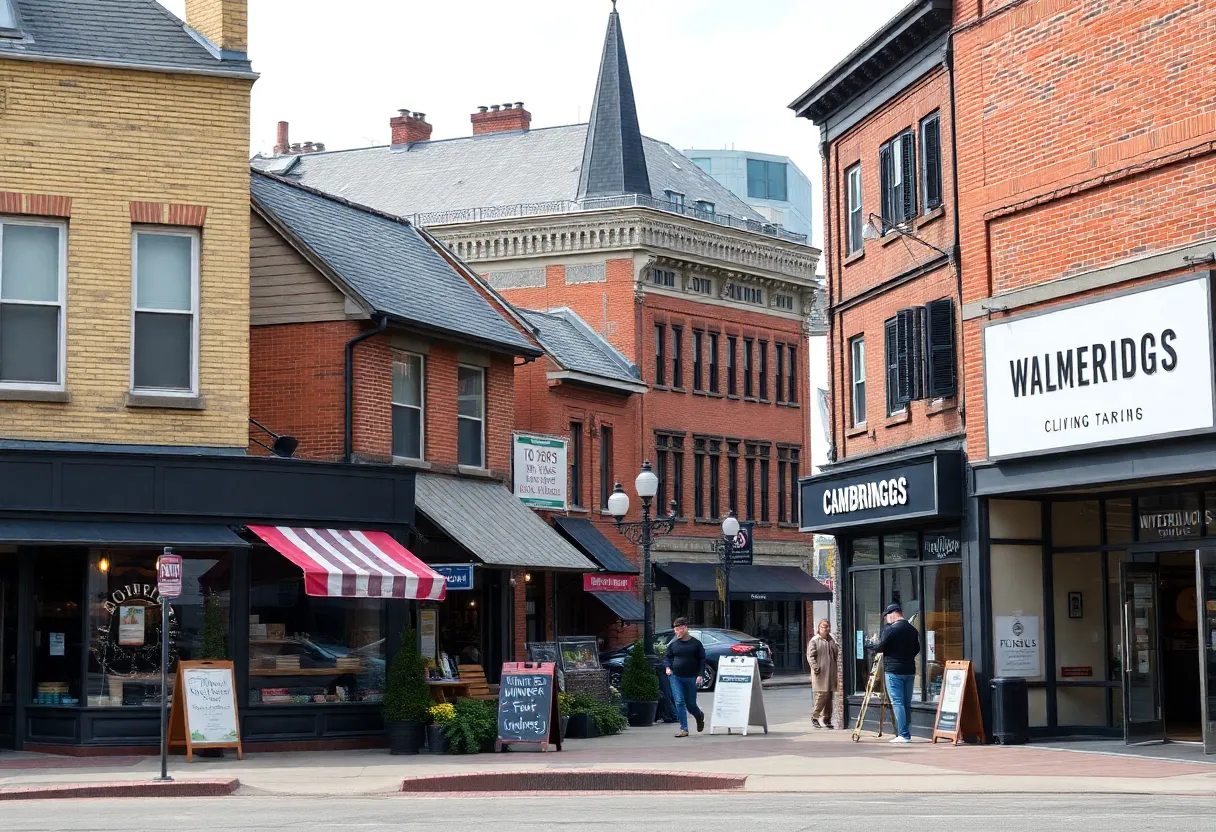News Summary
Boston Mayor Michelle Wu is set to testify before Congress, advocating for the city’s immigrant-friendly policies amid controversy over cooperation with ICE and deportation. The testimony comes in response to criticism from former Trump official Tom Homan, who questioned the city’s approach. As tensions rise, local support and opposition highlight a divided community on immigration issues, raising significant legal and political implications.
Boston Mayor Takes Stand for Immigrant Rights Amid Controversy
In a bold move to defend its immigrant-friendly policies, the city of Boston finds itself in the spotlight as Mayor Michelle Wu gears up for a significant appearance before Congress. The mayor’s testimony comes as a response to ongoing disputes between the city and the Trump administration, particularly regarding the controversial practice of cooperating with deportations.
Rising Tensions with ICE
The backdrop of this showdown involves Tom Homan, the former border czar under President Trump, who has publicly criticized Boston’s approach to immigration enforcement. During a recent appearance at the Conservative Political Action Conference, he took the opportunity to call out Boston’s police commissioner, questioning why there are alleged “child rapists” in the city who are not being handed over to U.S. Immigration and Customs Enforcement (ICE).
Homan asserted his intention to “bring hell” to Boston, although he left many wondering about what that actually meant in terms of action. Such dramatic rhetoric isn’t new; cities across the nation have encountered similar pressures from the Trump administration and other Republican representatives.
The Congressional Hearing
Mayor Wu will share the stage alongside the mayors of Chicago, New York, and Denver at the House Oversight and Government Reform Committee hearing, where they face intense scrutiny regarding their sanctuary city policies. These policies allow cities like Boston to limit cooperation with federal immigration enforcement, particularly for individuals not yet convicted of crimes. The Boston Trust Act, updated in 2018, takes a firm stance, permitting ICE collaboration only in serious public safety cases.
Local Support and Pushback
Wu’s defense hinges on the belief that cooperating with ICE for all individuals would do more harm than good, potentially eroding trust within the communities they serve. For instance, Suffolk County’s District Attorney Kevin Hayden emphasized that handing over individuals solely based on accusations could discourage victims and witnesses of crimes from coming forward.
Furthermore, Boston Police Commissioner Michael Cox pointed out that local law enforcement doesn’t have the authority to enforce federal immigration laws, and that immigration status doesn’t contribute to public safety concerns. This aligns with Massachusetts law, which restricts detaining individuals based solely on federal requests, a ruling that stems from a court decision in 2017.
Community Reactions
Even within the political arena, there are differing opinions. Wu’s opponent, Josh Kraft, supports the removal of violent offenders from the community but stands firmly against mass deportations and inflammatory politics. Meanwhile, Massachusetts Governor Maura Healey labeled Homan’s comments as “unproductive,” indicating they do not contribute to effective law enforcement.
Legal and Political Implications
As tensions rise, both supporters and critics of the sanctuary city policies gathered outside City Hall Plaza to voice their opinions during Wu’s congressional testimony. This protest highlighted Boston’s diverse perspectives on immigration, as voices from both sides called for different solutions to a complex issue.
It’s worth noting that while Boston navigates this tumultuous landscape, other regions experience similar challenges. Lawsuits have been filed against the Trump administration by suburbs like Chelsea and Somerville, asserting their constitutional rights amid growing pressures to align with federal immigration enforcement. Moreover, a video from a Republican-led committee has painted Wu and other mayors in a less-than-favorable light, pointing to the broader national debate around immigration policies.
The Road Ahead
The outcome of the congressional hearing could have significant repercussions, particularly with hints of proposed federal funding cuts for cities that don’t comply with federal immigration laws. All eyes are on Boston as Wu and her fellow mayors strive to protect their communities while addressing complicated concerns around safety, trust, and immigrant rights.
As this situation unfolds, one thing remains clear: Boston is ready to put its values of inclusivity and communal safety to the test, inviting lively and critical discussions about what it means to be a sanctuary city in today’s America.
Deeper Dive: News & Info About This Topic
HERE Resources
Major Changes Ahead for U.S. Small Business Administration Offices
Boston Media Landscape Changes as ‘Globe Today’ is Canceled
Boston City Council Supports Immigrants Amid Sanctuary Debate
Boston’s Sanctuary City Debate Heats Up
Boston Mayor Wu Receives Historic Police Union Endorsement
Boston Faces Tensions After Federal Immigration Critique
Boston Residents React to TPS Changes for Haitians
Boston Rally Highlights Discontent with Congressman Lynch
Fear and Confusion Loom Over Boston as Immigration Policies Shift
Massachusetts Schools Stand Strong Amid Immigration Policy Changes
Additional Resources
- AP News: Boston Mayor Takes Stand for Immigrant Rights
- Boston Herald: Michelle Wu’s Fight with Border Czar Tom Homan
- Boston.com: Border Czar Doubles Down on Promise to Crack Down on Boston
- NBC Boston: Protesters Sound Off at Dueling Immigration Rallies
- CBS News: Immigration and Tom Homan in Boston
- Wikipedia: Sanctuary City
- Google Search: Boston Immigrant Rights
- Google Scholar: Immigration Policy Sanctuary Cities
- Encyclopedia Britannica: Immigration
- Google News: Boston Mayor Michelle Wu








